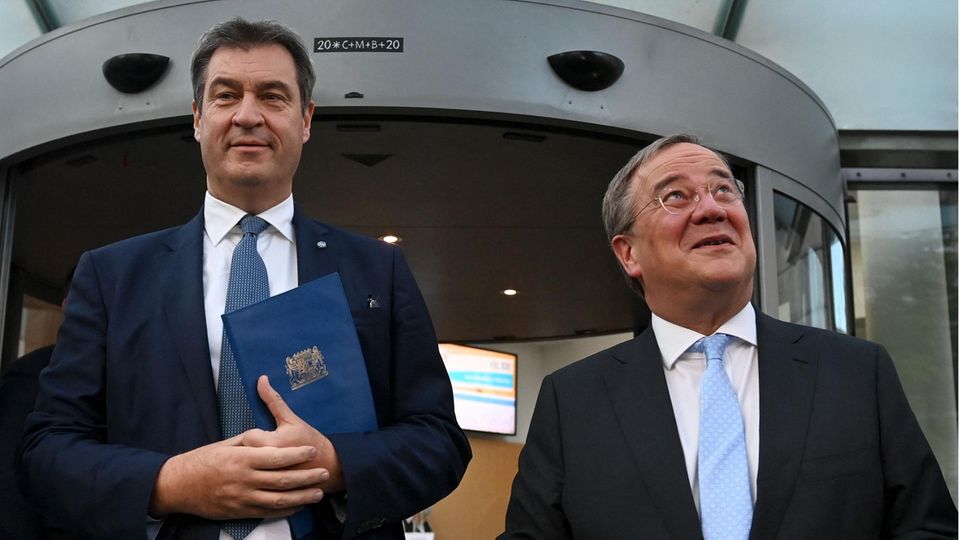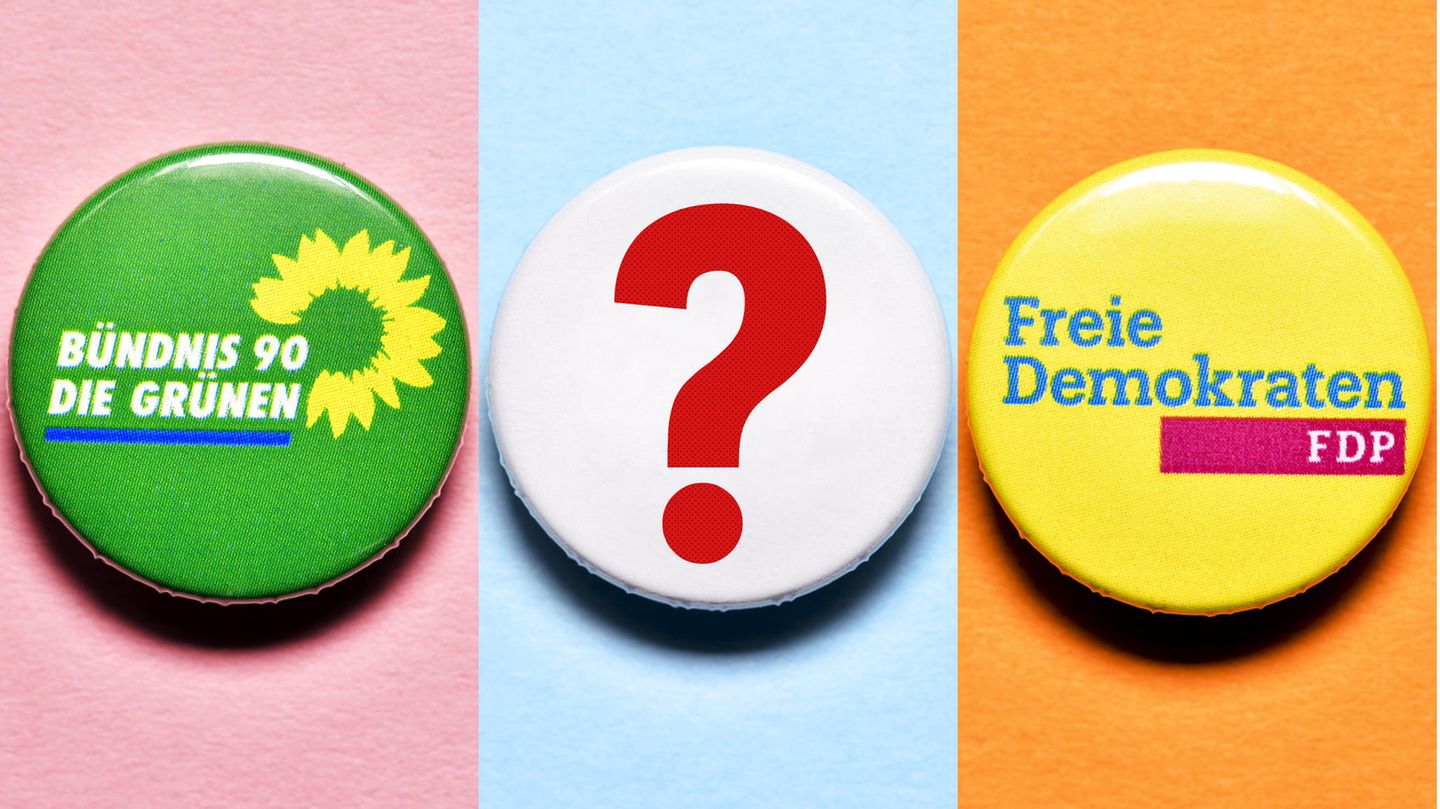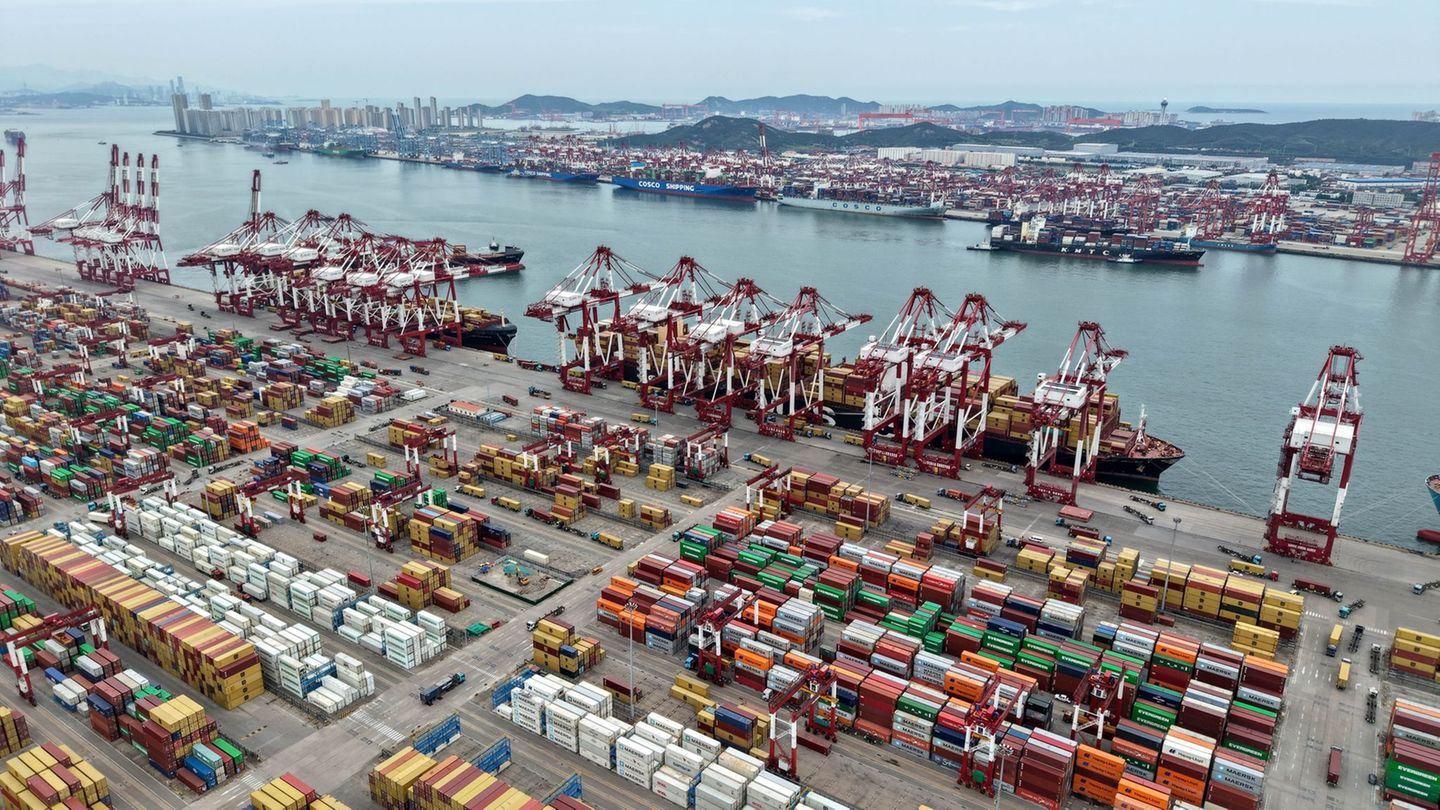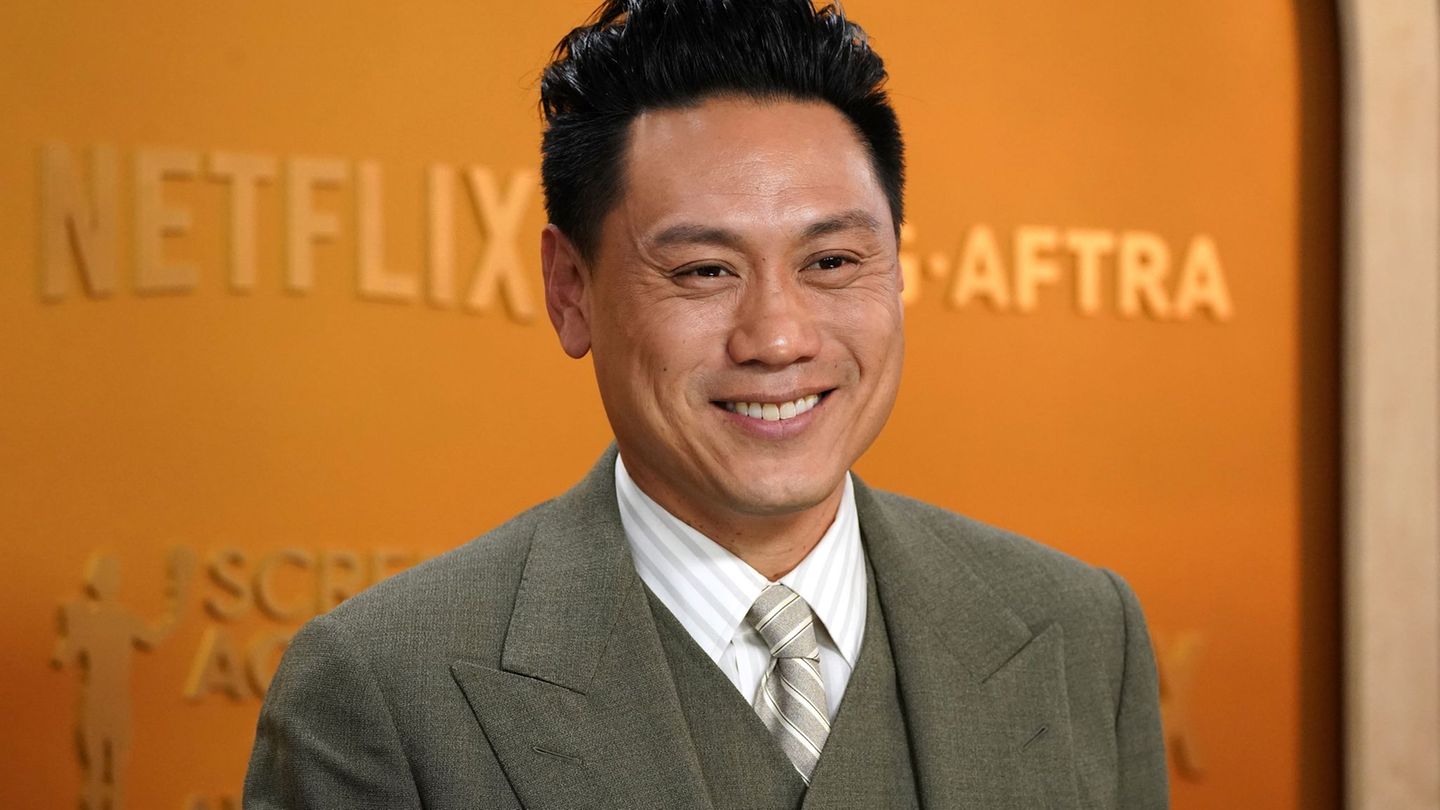One week the general election is over – now the SPD and Union are also involved in talks about the future government. How quickly is it now clear where the journey is going?
Now everyone talks to everyone. In an unadorned atmosphere, the SPD will also join the talks on forming a government on Sunday, the strongest political force since the federal election a week ago. It’s a noisy and busy corner in Berlin-Mitte, even on Sunday afternoons, cars and trams rumble past without a break. In a neutral office building, the Social Democrats begin their talks first with the FDP negotiating team around party leader Christian Lindner, then with the Greens.
The SPD and FDP wanted to talk for two hours. It then even became around 20 minutes longer. The Greens around Annalena Baerbock and Robert Habeck have long since arrived in the conference building for the internal pre-meeting when the general secretaries of the FDP and SPD, Volker Wissing and Lars Klingbeil, step in front of the cameras in the evening wind.
A good sign that yellow and red talked a little longer than expected? Wissing makes it clear right away: “Of course it was also clear that our content-related positions differed in essential points.” It was constructive – but: “It is clear that there are cliffs.”
For Armin Laschet it’s about everything
Klingbeil speaks of the “great challenges” that a new government is facing, such as the modernization of the state and Germany’s role in the world. The three of them want to get together very quickly – including the Greens. “We are clear – we want Olaf Scholz as Chancellor.”
Lindner had repeatedly emphasized a coalition with the Union as the first choice of the liberals, now these are witnessing their fundamental upheavals. For Armin Laschet, the explorations with the FDP and on Tuesday also with the Greens are about everything.
Lindner knows this and starts the day with a reminder. The CDU and CSU would have to clarify whether they really wanted to lead a government, he said in the “Bild am Sonntag”. “Some of the comments from the CDU speculate that negotiations with the SPD should fail before the Union comes back into play. You cannot expect our country to do that. We are ready to hold serious talks with the Union and, conversely, hope for the same.”
The SPD has been demonstrating for days: Here is a party with a new self-confidence. And with a plan: coalition negotiations from October, preparation of the coalition by December – so said party leader Norbert Walter-Borjans in the “Welt am Sonntag”.
“Progress” and “Awakening”
The FDP and the Greens had already talked in the days after the election. SPD chancellor candidate Olaf Scholz had already given the slogan at the start of the week that it was okay. The magic word that Scholz, Mützenich and Co. issued for the explorations: “At eye level” should be spoken. Scholz is already hoping for a particularly long term of the desired government: It should be so good “that it will also be re-elected”.
“Progress” and “awakening” emerge as the guiding concepts. They are stretchy. Most specifically so far: The digital network is still often lame and the procedures that it takes to approve power lines are still tough – changing both could be a visible progress project of all three coalition partners, if Scholz has their way.
For the Greens, the SPD has always been the preferred partner in the election campaign. The party wants to combine its core issue of climate protection with social policy and thus counter the impression that ecology is only something for those who can afford it. For this reason alone, the overlaps with the Social Democrats on social issues have a certain weight.
Neither the two Greens bosses and SPD general secretary Lars Klingbeil reveal much about how the mutual sniffing went. After all, Habeck attests to the SPD something that he would presumably not say about the stumbling Union at the moment: a willingness “to actually start all over again, to spark a dynamic that can then perhaps solve the problems left behind”. Klingbeil, for his part, is accelerating: “We were able to clarify many things in the first step, and the SPD is now ready for three-way talks” – including the FDP.
Confidentiality about the conversations
Although a traffic light coalition with the SPD and FDP is the favorite option of many Greens: They do not want to cancel a so-called Jamaica coalition with the CDU / CSU and FDP for the time being. Already from tactics. The Greens would significantly weaken their position.
In the evening, the big loser in the election joined the talks with the Union. And no question – the meeting with the FDP should be the easier round for the CDU and CSU. After it finally looked as if CDU boss Armin Laschet would hardly be able to close his own ranks after the historic bankruptcy, the FDP and the Greens want an answer. The fourth largest industrial nation could not be governed with a Union leadership, as it was last presented, from the ranks of potential partners.
FDP General Secretary Volker Wissing assessed the first round of talks about a possible federal government with the Union as positive. “We had a constructive conversation and we have few cliffs in terms of content,” said Wissing on Sunday evening in Berlin after an exploration with the negotiating team of the CDU and CSU. After a three-hour conversation with CDU General Secretary Paul Ziemiak and CSU General Secretary Markus Blume before the press.

When asked whether he considers the Union to be capable of governing in its current state, Wissing said: “We have agreed to keep the conversation confidential.” For this reason, he does not want to undertake any further evaluation of the content of the conversation.
CSU General Secretary Markus Blume has drawn a positive conclusion. “It was a good evening, it was a good start, which makes you want more,” said Blume after the three-hour talks between the leaders of the FDP and the Union. Both sides had “advised in a good spirit”, and it had been shown that both sides were very close to one another “in essential substantive points”.
Now it is a matter of creating a new era and not just managing the status quo, said Blume. “Think big” is the aim, not the search for the lowest common denominator. The FDP and the Union agree that it is a matter of bringing the big questions together. This requires a new list, but what has now been discussed could be an important contribution to this.
The Union fails to show unity
There is no question that the Union needs a miracle if it wants to assert itself in the government after the election bankruptcy. Before the meeting, it was heard from leaders of the Union that it could be an advantage to only be in the line after the conversation between the SPD and FDP: Then it would be clearer what the SPD’s offers were.
Söder and Laschet appear one after the other for a conversation on the Euref campus in Berlin-Schöneberg. After the two-hour preliminary meeting of the Union, Söder does not really look more confident than in the past few days, Laschet, as often, comes at the last minute. He doesn’t seem particularly tense.
As in the election campaign, Söder and Laschet have not really managed to demonstrate unity in the past few days. From the ranks of the CSU (and CDU) one can also hear that concern about a gutted Union as the price for a government is massively reducing the anticipation in Jamaica. Others suspect that the CSU would be more committed to sounding out a chance that the future chancellor could still be called Söder. For this, in turn, Laschet would have to pull his rip cord himself.
David William is a talented author who has made a name for himself in the world of writing. He is a professional author who writes on a wide range of topics, from general interest to opinion news. David is currently working as a writer at 24 hours worlds where he brings his unique perspective and in-depth research to his articles, making them both informative and engaging.




